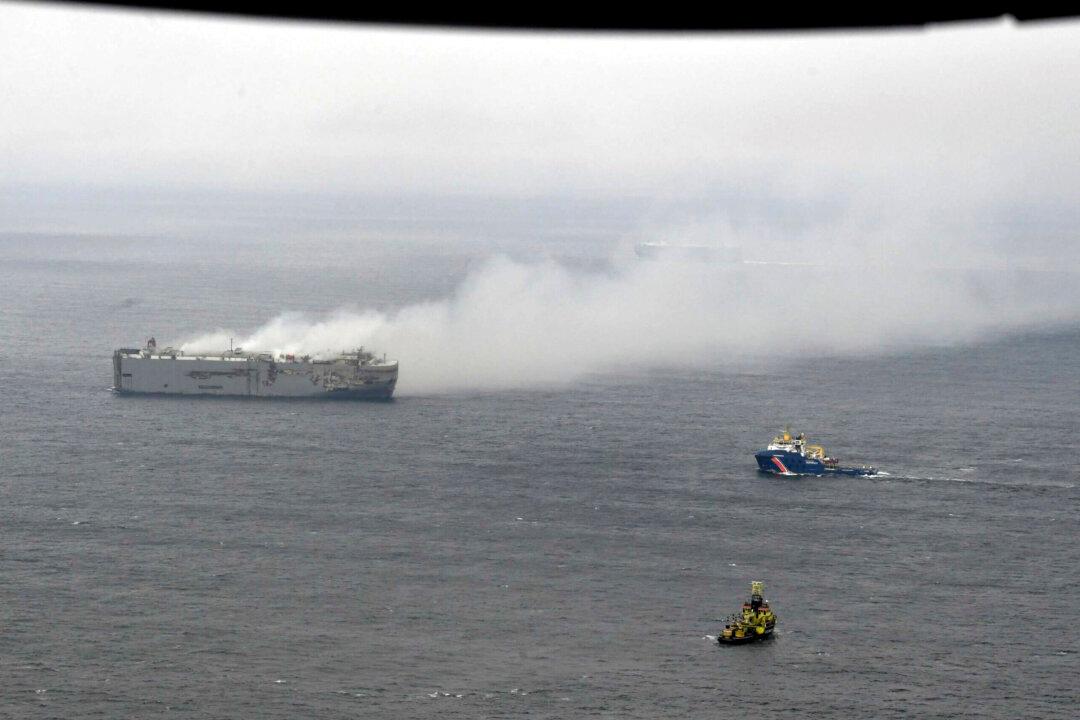THE HAGUE, Netherlands—A cargo ship packed with cars burned close to a world-renowned bird habitat off the Dutch coast Thursday as firefighters and salvage crews waited for the flames from a fire that started more than a day earlier to subside before attempting to board the vessel.
The Fremantle Highway was sailing from the German port of Bremerhaven to Singapore when it caught fire in the North Sea shortly before midnight Tuesday about 27 kilometers (17 miles) north of the Dutch island of Ameland, sparking fears of an environmental disaster.





